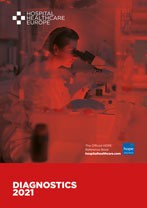The 100,000 Genomes Project, which involves whole genomic sequencing, has led to a new diagnosis in 25% of patients with a rare genetic disease.
A rare disease is defined as one affecting fewer than 1 in 2000 people in Europe1 and while much progress in recent years has enabled the identification of the genetic basis of many rare diseases, the underlying cause remains to be determined in at least half of these diseases. In an attempt to better understand the genetic basis for rare diseases, the 100,000 Genomes Project was established in the UK in 2017.2
The 100,000 Genomes Project trialists are a group of UK researchers from various locations and who have performed a pilot study to investigate the value of whole genome sequencing in patients with an undiagnosed rare disease.3 The investigators included patients with an undiagnosed rare disease which had not been diagnosed after receiving usual care in the National Health Service. For the genomic sequencing, the researchers investigated both coding and non-coding regions of DNA to identify ‘novel diagnostic variants’ in genes that had not been previously described in the literature.
Findings
The pilot enrolled 4660 participants which included 2183 probands (i.e., the first individual to receive any genetic counselling or testing) with a median age at recruitment of 35 years, of whom, 52% were male and 2477 family members. A wide range of rare diseases were included, involving neurological, ophthalmologic, dermatological and those representing intellectual disability and a metabolic disorder.
Based on whole genomic sequencing, the researchers were able to make a genetic diagnosis in 25% (535/2183 cases) of probands, of which 60% (322/535) were made on the basis of coding SNVs (single nucleotide variants) or indels (insertions and deletions) in the applied panels; additionally, 26% (141/535) were established based on coding SNVs or indels affecting well established disease genes outside of the applied testing panels. Furthermore, 10% of the probands had a variant of unknown significance in genes determined by geneticists at the recruiting site. The highest clinical categories of diagnostic yield were neurologic or development disorders (653), ophthalmologic disorders (321) and renal or urinary tract disorders (175).
The researchers identified that 35% of genetic diseases were considered to have a monogenic cause and 11% a more complex cause. A further important finding was that the 25% of genetic diagnoses (i.e., 134/535) were reported by clinicians to be of immediate clinical actionability and of value to patient care, for example, eligibility for a gene-replacement trial, whereas only 0.2% were described as of no benefit.
The authors concluded that their study supported the case for genomic sequencing in the diagnosis of certain, specific rare diseases and hoped that these findings would enable other healthcare systems to consider genome sequencing for patients with rare diseases.
References
- The European Parliament and the Council of the European Union (1999). Regulation (EC) No 141/2000 of the European parliament and of the council of 16 December 1999 on orphan medicinal products. https://ec.europa.eu/health/sites/default/files/files/eudralex/vol-1/reg_2000_141_cons-2009-07/reg_2000_141_cons-2009-07_en.pdf (accessed November 2021).
- The 100,000 Genomes Project. www.genomicsengland.co.uk/about-genomics-england/the-100000-genomes-project/
- The 100,000 Genomes Project Pilot investigators. 100,000 Genomes Pilot on Rare-Disease Diagnosis in Health Care – Preliminary Report. N Engl J Med 2021;385:1868–80.




